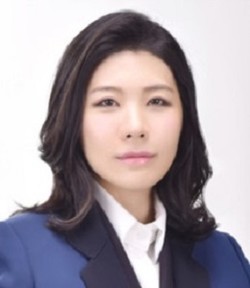
Essential medical care is in an aging crisis in Korea, a country already notorious for its ultra-low birth rates.
The aging of specialists in four essential medical departments -- surgery, cardiothoracic surgery, obstetrics and gynecology, and pediatrics -- has accelerated in the past decade, according to a report by Rep. Shin Hyun-young of the Democratic Party of Korea, a member of the National Assembly’s Health and Welfare Committee.
More specifically, the number of specialists aged 70 or more in the four departments surged by 136.3 percent from 686 in 2013 to 1,621 in 2022.
Those in their 60s increased 86.5 percent, from 1,960 to 3,656, and those in their 50s, up 35.6 percent, from 4,450 to 6,034.
While the number of physicians in essential care in their 50s and older has increased significantly from a decade ago, the number of those in their 40s and younger has decreased.
Specialists in their 40s in the four essential departments decreased by 6 percent, from 5,961 to 5,604, and those in their 30s and under, down by 24.2 percent, from 3,988 to 3,024.
By department, the number of surgeons aged 70 and over rose by 91.7 percent from 326 in 2013 to 625 last year, while those aged 39 and under decreased by 21.9 percent from 1,295 to 898.
In cardiothoracic surgery, the number of physicians aged 70 and older grew 575 percent from eight in 2013 to 54 in 2022, while those aged 39 and under shrank by 31.8 percent from 219 in 2013 to 148 in 2022.
Obstetrics and gynecology saw a 167.6 percent increase in physicians aged 70 or more, while those aged 39 and under had a 32.3 percent decrease over the same period.
In pediatrics, the number of specialists aged over 70 and more was up by 181.2 percent from 133 to 374, while the number of physicians under 39 decreased by 12.3 percent from 1,400 to 1,228.
These statistics enhance evidence that young Korean physicians are avoiding specializing in essential medical departments and choosing more lucrative areas such as dermatology and plastic surgery, due to reasons such as work-life balance and salary.
Aging in the physician population may have an impact “on abilities like visual acuity, working memory, and speed of mental operations,” according to a 2022 article by Canadian Medical Protective Association.

Rep. Shin, who is also a physician specializing in family medicine, said people can no longer persuade Millennials and Generation Z doctors to protect essential medical care.
“I still remember the words of a middle-aged professor in essential care who said he and his colleagues were holding on somehow, but it is difficult to convince juniors and Generation MZ doctors to dare to protect essential medical care in the harsh reality,” she said.
Instead of trying to rely on a few “good doctors,” the government should place a stable medical system to protect essential medical care, she added.

